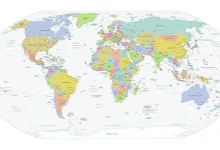Cairo: The Largest City in Egypt
Cairo, the capital of Egypt, stands as a monumental testament to the nation’s rich history and vibrant culture. Often referred to as “The City of a Thousand Minarets” due to its Islamic architecture, Cairo is not only the largest city in Egypt but also one of the largest cities in Africa and the Arab world. Its population is estimated to exceed 20 million inhabitants, making it a bustling metropolis that serves as a hub of political, economic, and cultural activities.
Historical Overview
Cairo’s history dates back to ancient Egypt, but the city itself was founded in 969 AD by the Fatimid dynasty. The name “Cairo” derives from the Arabic word “Al-Qāhirah,” which means “the victorious.” Its strategic location along the Nile River facilitated trade and transportation, establishing it as a vital center for commerce. Over the centuries, Cairo has absorbed various cultural influences, contributing to its diverse architectural landscape and rich historical tapestry.
Cultural Significance
Cairo is a city that thrives on its cultural heritage. It is home to numerous museums, including the world-renowned Egyptian Museum, which houses an extensive collection of ancient artifacts, including treasures from Tutankhamun’s tomb. The city’s Islamic Cairo district, a UNESCO World Heritage site, features stunning mosques, madrasas, and other historic buildings that reflect the Islamic Golden Age. Notable landmarks include the Mosque of Muhammad Ali, the Al-Azhar Mosque, and the Citadel of Saladin, all of which embody the architectural splendor of the era.
In addition to its Islamic heritage, Cairo is a melting pot of cultures and traditions, which is evident in its food, music, and festivals. The city hosts various cultural events throughout the year, celebrating everything from traditional Egyptian music to contemporary arts, making it a vibrant center for both local and international artists.
Economic Landscape
As the largest city in Egypt, Cairo plays a pivotal role in the nation’s economy. The city’s economy is diverse, encompassing sectors such as trade, tourism, manufacturing, and finance. Cairo is a major commercial hub in the Middle East, attracting both local and foreign investments. The presence of numerous multinational corporations, banks, and financial institutions further solidifies its status as an economic powerhouse.
Tourism is particularly significant to Cairo’s economy, as millions of visitors flock to experience its historical sites and rich cultural heritage each year. The proximity of the city to the Giza Plateau, home to the iconic Pyramids of Giza and the Sphinx, enhances its appeal as a top tourist destination.
Urban Challenges
Despite its grandeur and significance, Cairo faces numerous urban challenges. Rapid population growth has resulted in overcrowding, traffic congestion, and inadequate infrastructure. The city’s housing crisis is exacerbated by informal settlements, where many residents live in substandard conditions. Air pollution, primarily due to vehicular emissions and industrial activities, poses health risks to the population.
Efforts are underway to address these issues through urban development projects and environmental initiatives. The Egyptian government has launched various programs aimed at improving public transportation, expanding green spaces, and upgrading housing conditions. The development of the New Administrative Capital, intended to relieve some of the congestion in Cairo, represents a significant investment in the future of urban planning in Egypt.
Educational Institutions
Cairo is also a center for education in the Arab world. It hosts some of the oldest and most prestigious educational institutions, including Al-Azhar University, which is renowned for its Islamic studies programs and has been a beacon of learning since the 10th century. Other universities, such as Cairo University and Ain Shams University, contribute to the city’s reputation as an academic hub, attracting students from across the globe.
Conclusion
Cairo, as the largest city in Egypt, encapsulates a unique blend of ancient history and modern vibrancy. Its significant cultural, economic, and educational contributions make it a key player in the region. As the city continues to evolve, it faces challenges that require innovative solutions and sustainable development practices. The resilience and spirit of its inhabitants, however, ensure that Cairo will remain a vital and dynamic city for generations to come.

